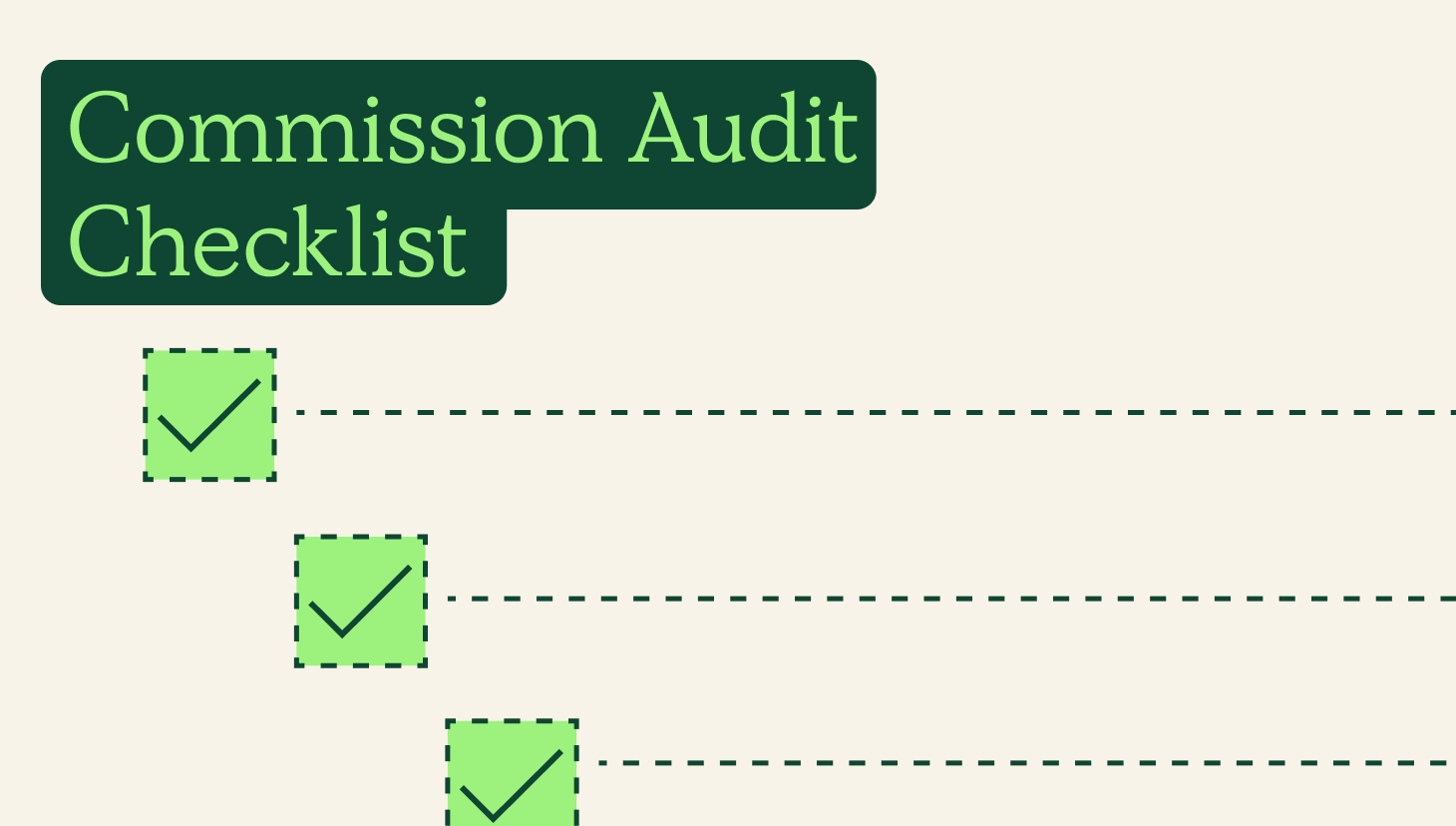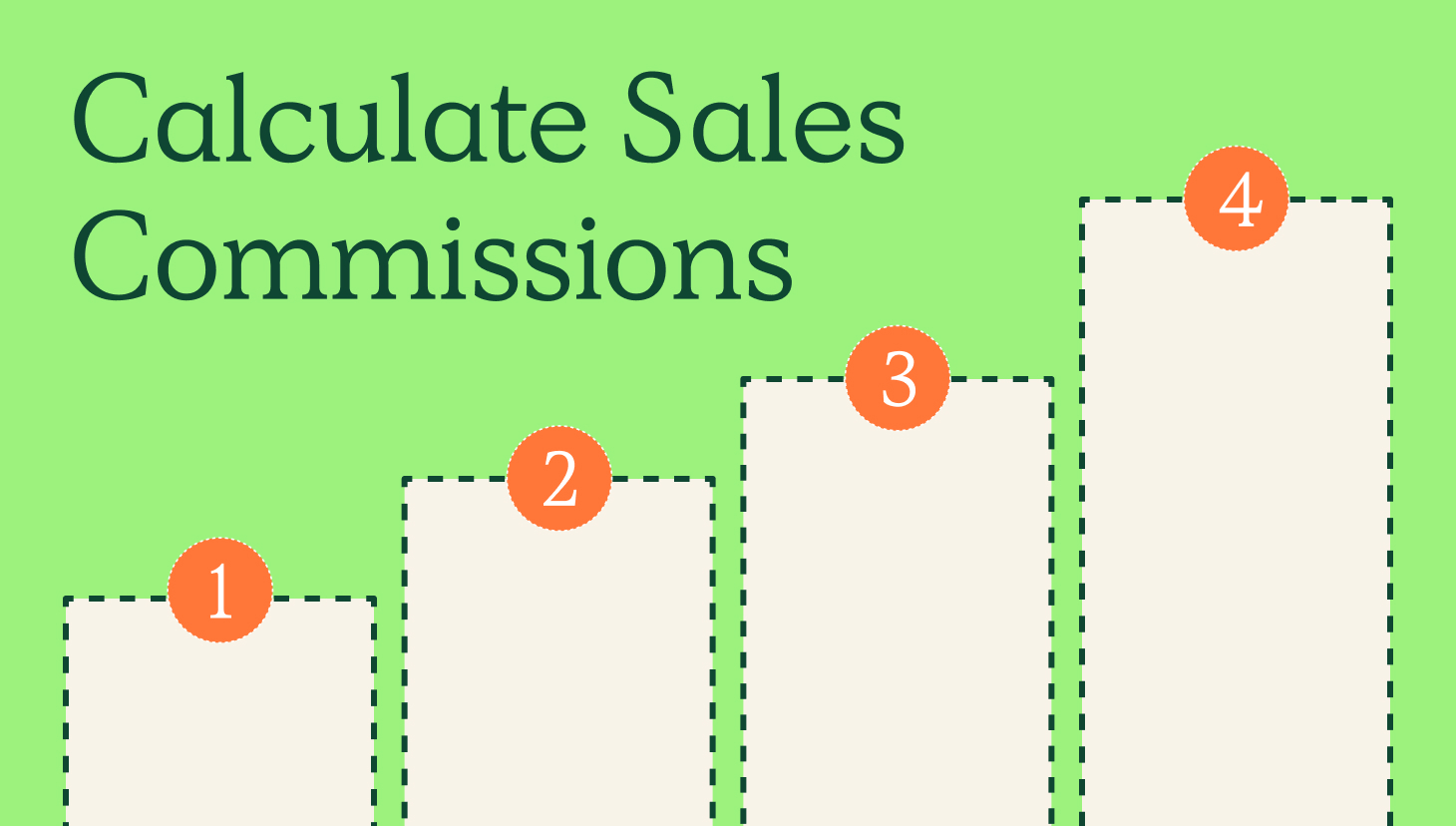Accurate commission payouts are essential for rep retention, motivation, trust, and productivity. Yet many businesses struggle with how to pay commissions consistently and promptly, while ensuring compliance.
Our latest guide shares how to pay commissions seamlessly and accurately, discussing structuring payment terms, payment processing steps, automation, and best practices.
Why Accurate Commission Payouts Matter
Let’s start by exploring the real cost of mistakes and the business benefits of getting payouts right.
The cost of payout errors and rep disputes
Even minor commission payout errors can lead to significant consequences. Our 2024 Sales Compensation Plan Report revealed that 22% of reps experience at least one commission dispute annually, and 9% of sales reps have quit their job over payout mistakes. In addition to the financial cost of rep turnover, the consequences of payroll errors include reduced rep trust and morale.
Inaccurate or delayed payments can harm morale, distract teams from closing new business, and undermine your entire compensation strategy. Poor sales commission accuracy affects rep paychecks, threatening your ability to retain top performers and drive revenue consistently.
Commission disputes are also a symptom of inefficient or manual workflows. Without an automated system or clear documentation process, reps lack visibility into how they’re paid. This reduces the understanding and effectiveness of the rep compensation plan, causing frustration. Automating payouts and surfacing an audit trail for every transaction helps prevent these issues.
The business case for getting commissions right
An accurate, transparent, and automated commission process has its benefits. It reduces manual admin work, improves payout accuracy, and builds trust between sales and finance.
A compensation automation platform like QuotaPath automates the entire sales compensation process, providing reps with access to their plans, payouts, and pipeline earnings forecasts — all in one place.
This prevents rep turnover and boosts motivation. Getting commission payouts right also ensures sales compensation compliance with state, federal, and accounting rules and standards like ASC 606 while supporting year-end reporting with clean, audit-ready records. Maintaining audit trails simplifies audits and builds confidence with leadership and investors.
This level of compensation transparency aligns finance and sales around clear compensation data, improving forecasting, quota setting, and resource planning.
How to Structure Commission Payment Terms
Establishing clear payment terms is the foundation of a successful commission strategy by deciding when to pay and setting easy-to-understand eligibility rules.
Deal signed vs. invoice paid – what to consider
Weigh cash flow implications alongside rep satisfaction and motivation when deciding how and when to pay commissions. Paying commissions when a deal is signed keeps sales reps engaged and energized by reinforcing their success. However, tying payouts to invoice payment helps stabilize cash flow and reduce financial risk when managing tight margins or variable revenue timing, such as monthly or annual subscriptions.
Some organizations delay payouts until they’ve received funds from the customer, or layer in payout rules and a clawback policy to protect against cancellations or non-payment. Others adopt a hybrid approach, offering higher commission rates for upfront payments or staggered incentives to motivate reps without compromising the business’s bottom line.
Choosing the right sales commission terms is about finding a balance. A structure that supports company sustainability and rewards reps fairly, driving performance while avoiding operational strain.
Setting payment schedules and eligibility rules
Once payment timing is decided, set a consistent commission payment schedule and clearly communicate eligibility. Reps should have clarity around payout timelines and deal eligibility criteria such as signed agreements, active customer status, or cleared invoices.
Eligibility rules also help protect against disputes and ensure compliance. For instance, QuotaPath allows users to set and enforce custom eligibility criteria through features like payout eligibility, which automates payment logic such as “eligible when invoice paid” or “eligible after deal start date.” Clearly documenting and communicating eligibility and clawback policies increases rep trust and ensures fair, consistent execution.
Step-by-Step Process to Pay Sales Commissions
After structuring commission payment terms, follow these five steps to build a reliable, repeatable commission process that scales.
Step 1: Approve deals and verify data
The first step in a smooth sales compensation workflow is verifying that deals that trigger commissions are valid. That means confirming commission approval with accurate deal data from your CRM, validating close dates, contract terms, and eligibility status before any calculations begin.
Step 2: Automate calculations using comp plans
Manual spreadsheets can slow things down and introduce costly errors. Using commission payout software to automate payouts based on predefined commission plans saves time while increasing accuracy and scalability.
Step 3: Schedule and send payouts
Establish a clear commission payment schedule and use automation tools to send payouts consistently. Align your payout cadence with payroll and finance systems to reduce confusion and avoid delays.
Step 4: Ensure audit-readiness and visibility
Keep records organized and transparent with audit-ready reports. Software like QuotaPath makes it easy to track earnings history, applied rates, and payout timing — building trust and preparing you for audits or financial reviews.
Step 5: Resolve disputes (if any)
Even with automation, questions and concerns may arise. Set up a clear process for dispute resolution, including in-platform communication, version control, and approval tracking, to quickly resolve issues and maintain rep confidence.
Maintain compliance and integrate with finance systems

Why Use Commission Payment Software Like QuotaPath
Manual commission workflows are slow, error-prone, and hard to scale. Here’s how QuotaPath automates payouts, builds rep trust, and ensures finance and sales stay aligned.
Automate complex payment workflows
QuotaPath, sales compensation software allows commission process automation, from deal approval to payroll sync. This level of automation eliminates spreadsheets and human errors, reduces administrative burden, and accelerates automated sales payouts. Instead of spending hours manually calculating commissions, revenue teams can build logic-driven workflows that automatically pull data from CRMs and push earnings directly into payroll systems.
Increase rep trust with transparency and control
QuotaPath empowers reps to control their income through real-time earnings visibility and intuitive dashboards. With access to their pipeline, attainment progress, and current payouts, reps can see how each deal impacts their pay. Self-serve breakdowns and dispute tools also enable reps to flag issues, track resolution, and clear up misunderstandings. These QuotaPath features build pay transparency into the compensation process, improving motivation and trust.
Accurate, compliant commission reporting is critical for every finance team. QuotaPath supports GAAP compliance, which aligns payouts with ASC 606 and ASC 340 accounting standards, helping you track, capitalize, and amortize commission expenses properly.
Integrations with leading platforms like Rippling, QuickBooks, and Salesforce enable seamless payroll integration and real-time syncing of compensation data across departments. By eliminating silos and centralizing commission logic, QuotaPath helps teams stay aligned and audit-ready.
Commission Payout Best Practices
These best practices will ensure every part of your commission program, from payment rules to dispute resolution, supports accuracy, compliance, and trust.
Always define clear payment rules: Clear, consistent rules around payout timing, eligibility, and clawbacks reduce confusion, prevent disputes, and set expectations that increase rep motivation and confidence.
Use a system that scales with your team: As compensation plans grow more complex and headcount increases, scalable systems ensure payout accuracy, reduce manual errors, and keep your sales compensation management process efficient and consistent.
Communicate openly with reps: Build rep confidence and reduce confusion through regular updates, clear documentation, and proactive rep communication around earnings and policies.
Ensure compliance and audit support: Align your commission processes with standards like ASC 606 and maintain clean records to support audits and financial reviews — essential for long-term payout accuracy and trust.
Track and resolve disputes quickly: A fast, visible resolution process minimizes tension and helps preserve morale, especially when reps can flag issues and track status in-platform.
Try the most collaborative solution to manage, track and payout variable compensation. Calculate commissions and pay your team accurately, and on time.
Start TrialPaying commissions correctly is a business-critical process. By aligning your payment terms, workflows, and software tools, you can minimize errors, ensure compliance, and motivate your team with confidence.
To automate your entire commission payout process with QuotaPath, book time with our team today.




